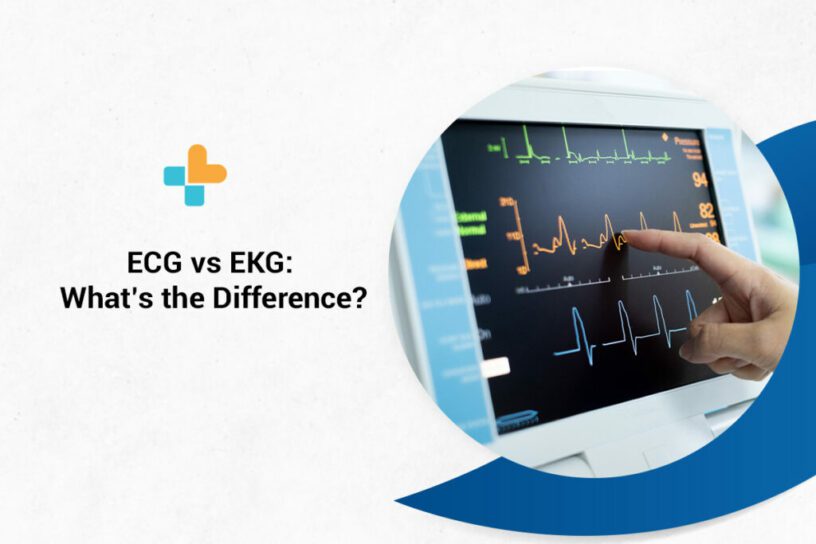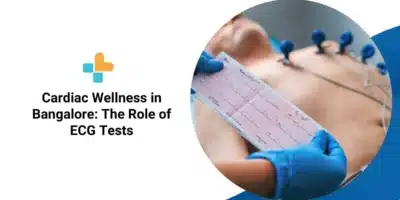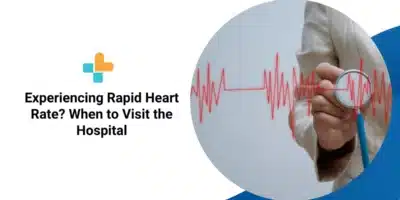Have you ever felt anxious before going in for a medical checkup? Do various medical terms overwhelm you and leave you confused? One of the most commonly appearing and often confusing terms is ECG and EKG. Most of us do not have clarity on which of these tests serve what purpose and what is the actual difference between an EKG test vs ECG test. Having a basic understanding of impending medical tests can help alleviate any concerns patients might have and put them at ease while going in for the tests.
What’s the Difference between ECG and EKG?
There is no difference between an ECG and an EKG. They are essentially two abbreviations of the same test which people might refer to as Electrocardiogram or Electrocardiograph. EKG full form is derived from the German spelling for elektrokardiographie, which is the word electrocardiogram translated into the German language.
An ECG/EKG is a test that determines or measures the electrical activity of the heart. Oftentimes, people use the abbreviation EKG because it is less likely to be confused with an EEG (electroencephalogram) which is a test that measures the electrical activity in the brain.
When is an ECG/EKG Needed?
An ECG/EKG is the most common heart test that might be ordered to be done by any cardiologist. Almost every second person who might be suspected to be suffering from any issue related to the heart might be suggested to go for this test as it is a screening test that helps to know the signs or any symptoms of a present disease related to one’s heart.
An electrocardiogram can help diagnose many common heart problems. A healthcare provider might use an electrocardiogram to determine or detect:
- Irregular heart rhythms (arrhythmias)
- If blocked or narrowed arteries in the heart (coronary artery disease) are causing chest pain or a heart attack
- Whether you have had a previous heart attack
- How well certain heart disease treatments, such as a pacemaker, are working
You may need an ECG if you have any of the following signs and symptoms:
- Chest pain
- Dizziness, lightheadedness, or confusion
- Heart palpitations
- Rapid pulse
- Shortness of breath
- Weakness, fatigue, or a decline in the ability to exercise
Healthcare providers may not always recommend using electrocardiograms to assess adults at low risk who don’t have symptoms. But if you have a family history of heart disease, your healthcare provider might suggest an electrocardiogram as a screening test, even if you have no symptoms.
If symptoms tend to come and go, they may not be detected during a standard ECG recording. A healthcare provider might recommend remote or continuous ECG monitoring. There are several different types.
- Holter monitor. A Holter monitor is a small, wearable device that records a continuous ECG, usually for 24 to 48 hours.
- Event monitor. This portable device is similar to a Holter monitor, but it records only at certain times for a few minutes at a time. You can wear it longer than a Holter monitor, typically 30 days. You generally push a button when you feel symptoms. Some devices automatically record when an irregular rhythm is detected.
Is an EKG/ECG Painful?
Not at all. Both these tests are painless and non-invasive and people who might undergo either of the two are not going to feel any pain at all which they might have felt if they went for an invasive test such as heart catheterization.
Risks
An electrocardiogram is a safe procedure. There is no risk of electrical shock during the test because the electrodes used do not produce electricity. The electrodes only record the electrical activity of the heart.
You may have minor discomfort, similar to removing a bandage when the electrodes are removed. Some people develop a slight rash where the patches are placed.
How Should You Prepare?
No special preparations are necessary for a standard electrocardiogram. Tell your healthcare provider about any medications and supplements you take. These can often affect the results of an ECG.
What Should You Expect?
ECG or EKG — is often done in a health care provider’s office, a clinic or a hospital room. ECG machines are standard equipment in operating rooms and ambulances. Some personal devices, such as smartwatches, offer ECG monitoring. Ask your health care provider if this is an option for you.
Before
You may be asked to change into a hospital gown. If you have hair on the parts of your body where the electrodes will be placed, the care provider may shave the hair so that the patches stick.
Once you’re ready, you’ll typically be asked to lie on an examining table or bed.
During
During an ECG, up to 12 sensors (electrodes) are attached to the chest and limbs. The electrodes are sticky patches with wires that connect to a monitor. They record the electrical signals that make the heartbeat. A computer records the information and displays it as waves on a monitor or paper.
You can breathe during the test, but you will need to lie still. Make sure you’re warm and ready to lie still. Moving, talking or shivering may interfere with the test results. A standard ECG takes a few minutes.
After
You can typically return to your usual activities after your electrocardiogram.
The Results
The results of your ECG can be made available on the same day as the test and will be used for reference by your health care provider for subsequent discussions.
The ECG results give detailed insights into the following:
- Heart rate
Heart rate is usually measured by checking the pulse. An ECG is helpful in cases where the pulse is difficult to detect and either too fast or too irregular to count accurately. An ECG can identify an unusually fast heart rate (tachycardia) or an unusually slow heart rate (bradycardia). - Heart rhythm
An ECG can help detect irregular heartbeats (arrhythmias). An arrhythmia may occur when any part of the heart’s electrical system malfunctions. - Heart attack
An ECG can show evidence of a heart attack that has occurred previously or even one that is currently happening. Identifying which parts of the heart have been damaged and the extent of damage as well can be determined via the patterns from the ECG results. - Blood and oxygen supply to the heart
In cases where symptoms are showing, an ECG can be done to help your health care provider determine whether reduced blood flow to the heart muscles is causing chest pain. - Heart structure changes
An ECG is capable of providing insights to assess the possibility of structural changes within the heart such as an enlarged heart, heart defects and other related heart issues.
If the ECG results show a problem related to the heart rhythm, you may need another ECG or sometimes even a different type of test such as an echocardiogram. Subsequent treatment options depend on what is causing your signs and symptoms. Ayu Health is one of the best multispecialty hospitals in Bangalore which offers comprehensive medical packages comprising a wide variety of medical tests at affordable rates. This combined with experienced doctors, friendly staff, and modern infrastructure is sure to help you navigate your hospital visits with ease.
Our Hospital Locations
Cardiac Surgery Hospitals in Chandigarh | Cardiac Surgery Hospitals in Bangalore | Cardiac Surgery Hospitals in Jaipur | Cardiac Surgery Hospitals in NCR | Cardiac Surgery Hospitals in Hyderabad
Our Doctors
Cardiac Surgery Doctors in Chandigarh | Cardiac Surgery Doctors in Chandigarh | Cardiac Surgery Doctors in Bangalore | Cardiac Surgery Doctors in Jaipur | Cardiac Surgery Doctors in NCR | Cardiac Surgery Doctors in Hyderabad
About the Author

Dr. Magesh Balakrishnan
Dr. Magesh Balakrishnan is a renowned cardiologist currently practicing at Ayu Health, Bangalore.
He has 16 years of experience in this field. He has excellent skills in performing all cardiac diagnostic procedures/ tests. He has performed emergency and elective angiographies and angioplasties, device implantation (Pacemaker, AICD & CRT)




